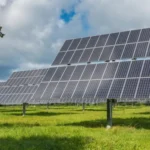Abe Issa Discusses New York’s Proposal for All-Electric New Construction

What are the benefits of an all-electric state?
Following a 2021 New York City law requiring all new construction to be all electric only (avoiding the use of gas or oil systems), the entire state of New York is now considering a very similar law that would apply to the entire state.
“These changes will help the state reach targeted goals in the 2020s that were created with the Climate Leadership and Community Protection Act passed in 2019,” explained Abe Issa. “Let’s take a closer look.”
Benefits of “All Electric” Laws Like This
The good news about NYC passing its own all-electric law a year earlier is that people have had plenty of time to examine the process and consequences involved. That includes just how much a law like this can help reduce carbon footprints and achieve vital clean electricity goals. In the following year, the advantages of a regulation like this have become even more clear. That includes:
Lower Costs for Homeowners: As we’ve seen over the years, electricity is increasingly a more reliable, cost-saving power source for homes. “I’m sure that you have noticed just how volatile fuel prices can be over the past couple of years. That’s especially true in places like New York, where home energy costs are far higher than the national average and set to grow significantly higher every winter due in large part to rising gas and oil costs. Electricity doesn’t have the same problem and is subject to more consumer-friendly monitoring and controls. Estimates show families could save as much as $1,000 per year in heating costs by moving to an all-electric home,” Abe Issa said.
Easier Standardization and Training for Technicians: Electricians are also pleased about these changes, which will make maintenance and repairs significantly easier for new construction. Moving toward electricity helps to standardize the types of heating systems that homes and apartments use, which means fewer systems to learn and fewer certification options to master for owners, which can lead to more affordable service and more reliable repairs.
Avoiding Potential Pollution Issues: You may have heard about reports that natural gas and similar fuel sources can pollute your home. That’s true in the case of gas stoves, where direct flames do produce pollutants that can worsen respiratory problems and cause other issues. While gas stoves aren’t being banned, states are requiring more ventilation and, like New York, phasing out their use in homes. But even gas used in other ways creates additional pollution that’s funneled into the outdoors, raising the overall pollution index of the area. Switching to electricity not only provides a faster, more stable cooking experience but also cuts down on pollution.
More Attractive New Construction: Abe Issa continued, “Because of the benefits I mentioned above and similar issues, new homebuyers, and renters are more interested in electric systems than gas systems which can be more outdated and maintenance-heavy. This increases the value of new construction and makes new construction of housing developments or apartment complexes easier to manage since they’re less likely to need gas lines.”
Encouraging More Renewable Energy: Embracing an all-electric construction approach also opens many doors for other parts of the renewable energy industry. That includes more interest in solar panels and electric vehicles, bringing communities closer to an entirely clean-energy infrastructure.
Providing a Template for Other States to Study: New York City was one of the very first cities to pass its all-electric requirements, but it wasn’t the last. Other American cities like Los Angeles followed suit. One of the benefits of early legislation like this is that it gives other cities a chance to look at how the law works, the effects it has, and any challenges that it runs into. The same is true of statewide laws. This gives other states the chance to study the law and create an improved version or versions that better apply to their own region. This is how change can more easily spread around the United States without federal intervention, as we’ve seen with other movements like legalized cannabis.
Are These Laws Worth the Trouble?
“I don’t think there’s any doubt that the benefits of switching to full electricity far outweigh the new requirements. All-electric homes are already common and reduce dependency on volatile gas and oil prices while saving energy. Plus, those who want to keep using their gas systems are free to do so, as gas is being phased out but not replaced entirely at this time,” Abe Issa explained.
What Steps are Next?
As New York considers implementing new regulations, it’s important for the construction and renewable energy industries to consider how to change their approach to new building developments. There’s a lot of opportunity for new partnerships and other advantages to be found as states like New York move to clean electricity.
About Abe Issa
Abe Issa is a pioneer entrepreneur in the clean energy space. He has led numerous companies named in the Inc. 5000 and launched one of the fastest-growing virtual solar sales platforms.
Issa’s work has been recognized by reputable entities, including The American Business Awards. He is passionate about helping others achieve their goals and dreams, and he believes that clean energy is key to creating a brighter tomorrow for all.
